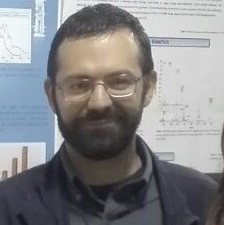Semi-solid Matrices in Non Conventional Solvents
A special issue of Molecules (ISSN 1420-3049). This special issue belongs to the section "Materials Chemistry".
Deadline for manuscript submissions: closed (31 March 2023) | Viewed by 1697
Special Issue Editors
Interests: supramolecular chemistry; ionic liquids; supramolecular gels; hybrid supramolecular gels; biomass transformation; self-assembly processes
Special Issues, Collections and Topics in MDPI journals
Interests: ionic liquids; supramolecular gels; biomass transformation; self-assembly processes
Special Issues, Collections and Topics in MDPI journals
Special Issue Information
Dear Colleagues,
Soft materials have attracted researchers’ interest thanks to the wide range of applications that they can have. Recently, a surge of interest has been detected toward soft materials based on non-conventional solvents, like ionic liquids and deep eutectic solvents. These solvents gained interest due to their low vapor pressure and flammability and, in some cases, low eco- and biotoxicity.
This Special Issue aims to collect contributions describing the obtainment, characterization and applications of soft materials like supramolecular gels and films.
The hope is to have a general overview of such kind of materials whose investigation is still in its infancy and to provide valuable support to researchers working in the area or approaching this topic.
Prof. Dr. Francesca D’Anna
Dr. Salvatore Marullo
Guest Editors
Manuscript Submission Information
Manuscripts should be submitted online at www.mdpi.com by registering and logging in to this website. Once you are registered, click here to go to the submission form. Manuscripts can be submitted until the deadline. All submissions that pass pre-check are peer-reviewed. Accepted papers will be published continuously in the journal (as soon as accepted) and will be listed together on the special issue website. Research articles, review articles as well as short communications are invited. For planned papers, a title and short abstract (about 100 words) can be sent to the Editorial Office for announcement on this website.
Submitted manuscripts should not have been published previously, nor be under consideration for publication elsewhere (except conference proceedings papers). All manuscripts are thoroughly refereed through a single-blind peer-review process. A guide for authors and other relevant information for submission of manuscripts is available on the Instructions for Authors page. Molecules is an international peer-reviewed open access semimonthly journal published by MDPI.
Please visit the Instructions for Authors page before submitting a manuscript. The Article Processing Charge (APC) for publication in this open access journal is 2700 CHF (Swiss Francs). Submitted papers should be well formatted and use good English. Authors may use MDPI's English editing service prior to publication or during author revisions.
Keywords
- ionic liquids
- deep eutectic solvents
- ionogels
- eutectogels
- self-assembly
- supramolecular chemistry
- soft materials







